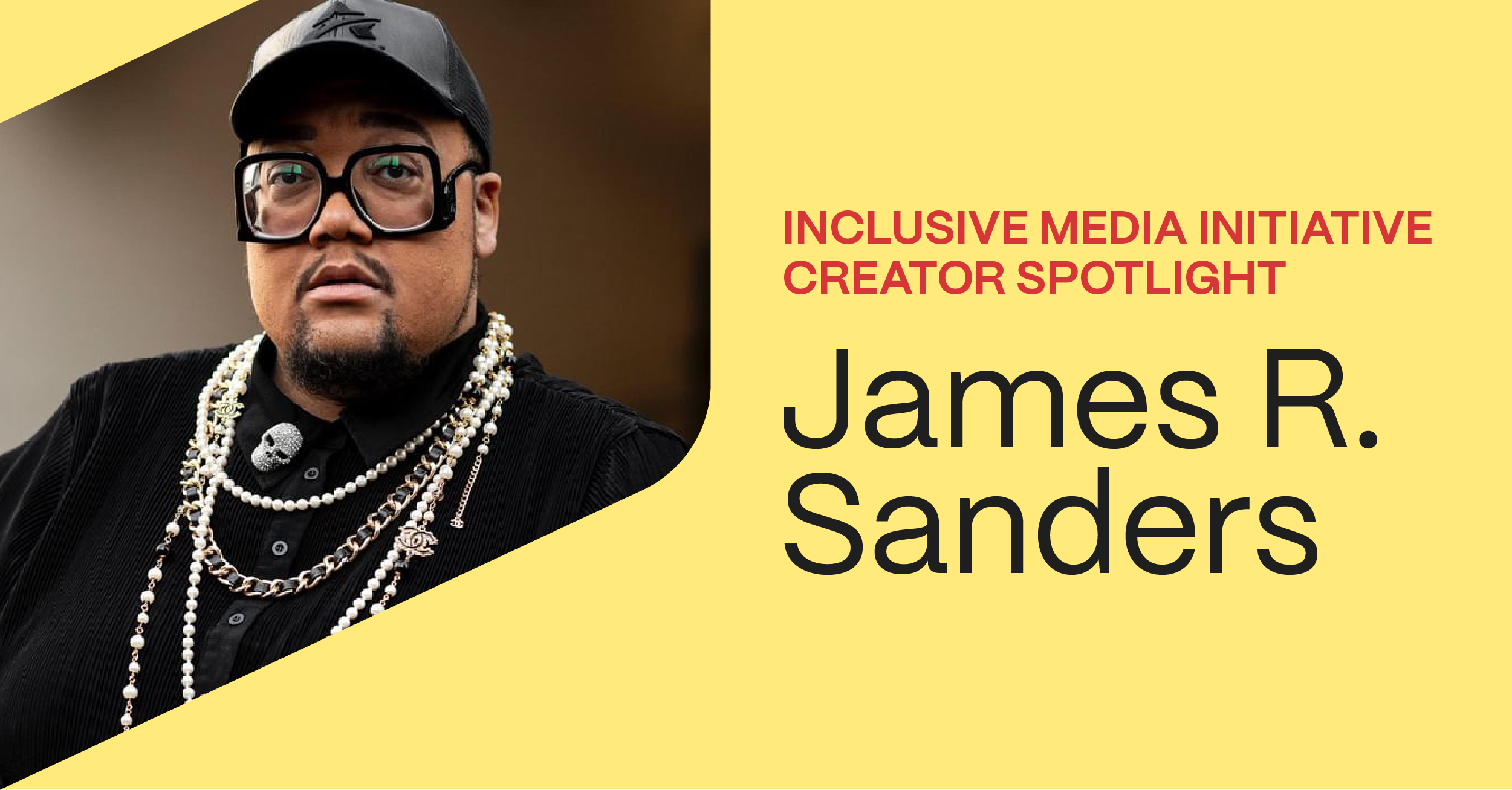
Inclusive Media Initiative Creator Q&A: James Sanders
Pixability’s Inclusive Media Initiative is our mission to support diverse creators and communities on YouTube.
In July, we recognize National Minority Mental Health Month. This is a crucial time to raise awareness about the unique mental health challenges minority communities face and highlight the importance of diverse influencers’ ability to positively impact their communities across YouTube.
Meet James Sanders, one of our fabulous Inclusive Media Initiative creators that I was lucky enough to interview this month! Check out his YouTube channel here, in addition to Instagram, Twitter, and website.
Pan: Tell us a little bit about yourself, how did you get started as a creator?
James: It’s an obligation. Creation for me, is a calling and obligation.
I knew that words were a gift; speaking was a gift, and fashion was a talent. Somewhere along the line, I figured out how to combine those things together to help my people—Black people. The content I create whether professionally as an award-winning journalist and stylist, or as a content creator and YouTuber changes perspective.
I’m known for bridging social justice and fashion together in a way that celebrates Blackness. Never in my wildest dreams did I think that this would become a niche, but—It. Is. So.
Pan: Tell us about yourself and how you got started as a content creator.
James: I always loved watching TV and seeing people film reality TV. After discovering what media was at a young age, I was always intrigued by the camera. The camera itself is a powerful tool and it can be used for so much more than the natural eye can see.
Pan: Tell us about your social media profiles – what types of content do you create and who is your main audience?
James: My main audience is always Black people. This includes straight, gay, trans, binary, non-binary, and anything in or out of the box. If you are Black, this includes you.
My content aims to feel like a hug. It should feel familiar and relatable. I want it to be a rebuke when necessary, but never judgmental.
It should feel like home. It should always feel like home, because that’s what the Black experience is—HOME. I carry this philosophy throughout YouTube, Instagram, TikTok, and X, the artist formerly known as Twitter.
Pan: Tell us about your book and your work in fashion activism. Also where can our readers buy a copy?
James: My book, Reparations: Style + Soul is a collection of essays and images written and styled by me. Like the content I produce, this project felt like an obligation. I was compelled to produce it. The essays focus on race and use fashion as a catalyst to tell stories about Black culture. The images feature Black models all shot by Black photographers with the aim to battle common stereotypes that we see in mainstream media.
My newest project, Knowledge of Self: A Guided Journal features over 100 writing prompts. It has several resources including info on starting a new business, grants for Black owned businesses, social justice agencies, mental health resources, and book lists.
During a volatile time of racial unrest in 2020, I, like most, was feeling uneasy. I needed an outlet to express my feelings. When I scoured bookstores and the internet looking for guided journals at the suggestion of my therapist, I couldn’t find one that spoke to my experience as a Black male. That’s when one of my favorite quotes by Toni Morrison came into play, “if you are looking for a book and it hasn’t been written, write it.”
Pan: Can you share some practical coping mechanisms or self-care strategies specifically tailored for black creators (or artists in general) to manage stress, burnout, and the pressure of online visibility?
James: Two things come to mind – first, we must not underestimate the importance of community, especially when dealing with the anxiety of racism.
Countless studies have been released that speak to the damage from a mental health standpoint that racism has on minorities. This is quite prevalent among Black people. In this instance, it is especially important to surround yourself with people who can relate and troubleshoot this.
Second, we must break the stigma of thinking that therapy is, “for white folks only.”
For years, the Black community has felt as a whole, that therapy and mental health services were something we did not need. Instead, we opted for church. I think Church and faith are powerful tools and should be valued.
IN ADDITION to those things, mental health services are necessary and can often save lives.
Pan: How can black creators use their platforms to advocate for mental health awareness and destigmatization within their communities? Or are there any specific campaigns or initiatives you’d like to highlight?
James: Black creators must adopt the idea that was introduced by WEB DuBois in terms of the Talented Tenth. When we learn things about mental health—especially that it is valuable and necessary, we must educate others within the Black community of its value. This is our obligation to us. If we love ourselves, we must protect ourselves.
We are all we have.
Pan: What role can allies, brands, and non-black creators play in supporting the mental health of black creators? How can we create a more inclusive and supportive online environment?
James: They must begin the necessary work of practicing the same amount of patience they have and feel entitled to where mental health is concerned for those in their own communities.
The same way someone is “mentally disabled,” and NOT a criminal—that consideration should be given to those within the Black community.
This work will not happen overnight—while doing the work, you must educate yourself on the issues, accept your privilege for what it is, take accountability, and learn from those who came before you.
Pan: What would your perfect brand partnership look like?
James: I would love to collaborate with networks—especially those on streaming networks, to create and build fashion, social justice, and race initiatives and programs through first look deals, and capsule projects.
YouTube, Hulu, even designers, and PaperSource as a writer, are all things that I’ve dreamed about.
Pan: Is there anything else you would like to share? Or questions you would like me to ask?
James: One such way you can help is by using your privilege to amplify voices such as mine. I’ve always felt like there’s been a glass ceiling I’ve never been able to crack. For whatever that reason may be, if any opportunities arise, please keep content creators such as myself and others in mind. That is how you do the work.
To learn more about Pixability’s Inclusive Media Initiative, or to sign up, see below.
